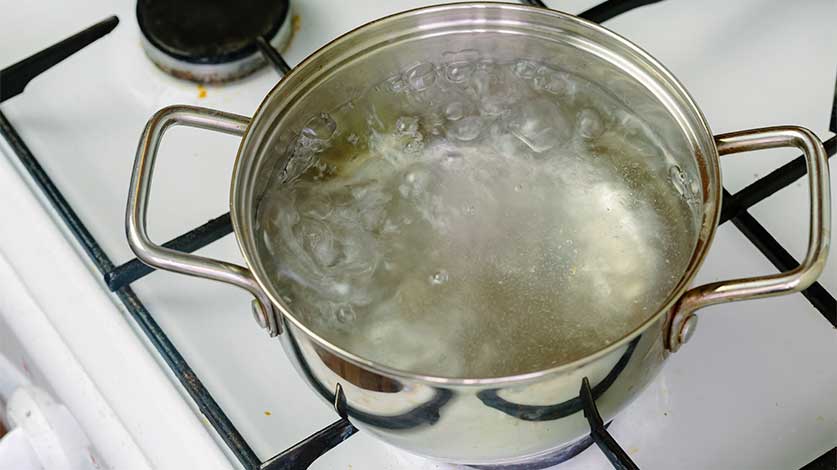How Is Crack Cocaine Made?

Medically Reviewed By: Kimberly Langdon, M.D.

Written by: Fikret Terzic MD, MS
Crack cocaine is made by combining the powder form of cocaine with sodium bicarbonate. Once this mixture is cooked, the solid form of cocaine, also known as “crack rocks,” are formed.

Cocaine hydrochloride, or white cocaine powder, comes from the coca plant which can be found in South America. According to the United States Drug Enforcement Administration (DEA), this stimulant is a Schedule II controlled substance and highly addictive drug.
How Crack Cocaine Is Made
To make crack, the white powder form of cocaine is mixed with sodium bicarbonate (baking soda). Once the substances are combined and boiled, this can be considered freebase cocaine.
Now as a solid, the crack cocaine can be broken into tiny rocks known as “crack rocks,” the term used to refer to the crackling sound produced when crack is smoked. This form of cocaine use creates an intense high and has the potential for abuse.
Side Effects Of Crack Cocaine
There are several side effects of crack cocaine which can worsen if the drug is smoked.
Short-Term Side Effects
According to the National Institute on Drug Abuse (NIDA), a person smoking crack cocaine may experience side effects such as:
- feeling energized
- loss of appetite
- sense of euphoria
- hypersensitivity
- dilated pupils
- irritability
- paranoia
Long-Term Side Effects
Those smoking crack cocaine may also experience damage to the lungs, breathing difficulties, and persistent coughing if this drug use lasts long-term. Smoking crack can cause harm to the throat as well.
Cardiovascular problems may take place if a person abuses crack cocaine long-term. This type of cocaine abuse restricts blood vessels and causes an increased heart rate.
In addition to this, fluctuations in blood pressure may occur. All of these symptoms can put stress on the heart, leading to a potential heart attack.
Withdrawal Symptoms
Some of the withdrawal symptoms that can occur when you stop using crack cocaine may include:
- mood swings
- lack of concentration
- insomnia
- fatigue
- severe cravings for the drug
- headaches
- increase in appetite
Seek the medical advice of your local Ohio healthcare provider to determine if you require further treatment for your drug abuse.
Dangers Of Crack Cocaine Abuse
When participating in cocaine abuse, there are countless dangers that can occur.
Fake Crack Cocaine
Unfortunately, when a person has a crack addiction, they may look at various avenues to find their drug of choice and chase the “high” produced by that particular drug.
Purchasing crack cocaine from social media, the drug market, or drug dealers can result in receiving drugs that contain impurities.
While some drug dealers may knowingly sell crack cocaine without any cocaine present, others may not realize their supply has been contaminated with dangerous drugs such as fentanyl, methamphetamine, and synthetic cathinones/bath salts.
Crack Cocaine Overdose
When a person experiences a crack cocaine overdose, some of the symptoms that occur may include:
- high blood pressure
- high body temperature
- difficulty breathing or respiratory depression
- seizures
- loss of understanding
- severe sweating
- coma
The Substance Abuse and Mental Health Services Administration (SAMHSA) states that cocaine is involved in 1 in every 5 overdose deaths. If you suspect a loved one is suffering from an overdose, contact 911 right away. Seek urgent medical attention.
Your healthcare provider may offer medical advice and suggest that a rehab center can be helpful. There are various treatment programs to assist in crack cocaine addiction.
At Ohio Recovery Center, our crack addiction treatment options include medical detox, behavioral therapy, and group therapy and support. To learn more about our inpatient treatment center, please contact us today.
- Department of Justice — What is Crack Cocaine? https://www.justice.gov/archive/ndic/pubs3/3978/3978p.pdf
- Drug Enforcement Administration — Cocaine https://www.deadiversion.usdoj.gov/drug_chem_info/cocaine.pdf
- National Institute on Drug Abuse — How is Cocaine Used? https://nida.nih.gov/publications/research-reports/cocaine/how-cocaine-used
- National Institute on Drug Abuse — What is Cocaine? https://nida.nih.gov/publications/drugfacts/cocaine
- Substance Abuse and Mental Health Services Administration — Know the Risks of Using Drugs https://www.samhsa.gov/adult-drug-use

